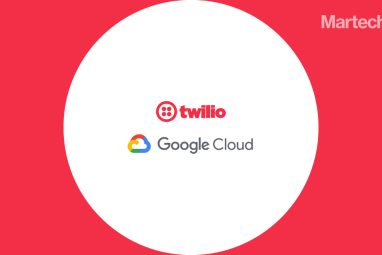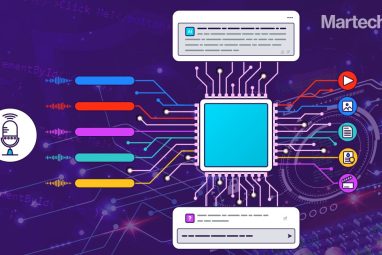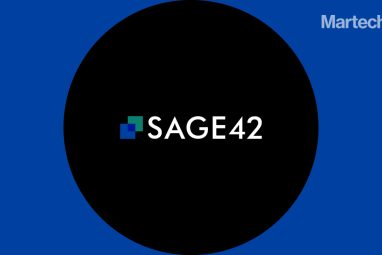Nielsen Rolls out ID Resolution System for Global Attribution Measurement
Nielsen (NLSN) announced a new approach that moves away from third-party cookies to privacy-centric, people-based identifiers for Attribution. This new technique ensures advertisers and publishers can understand the entire consumer journey across platforms, better optimise their spend and prove the impact of advertising. Nielsen’s previously announced ID resolution system utilises persistent, device-agnostic identifiers to combat […]
Topics

Nielsen (NLSN) announced a new approach that moves away from third-party cookies to privacy-centric, people-based identifiers for Attribution. This new technique ensures advertisers and publishers can understand the entire consumer journey across platforms, better optimise their spend and prove the impact of advertising.
Nielsen’s previously announced ID resolution system utilises persistent, device-agnostic identifiers to combat the issue of data erosion and prepare for an increasingly fragmented future, enabling Nielsen to verify demographic characteristics and media exposure over time across all media.
By underpinning its audience and outcomes measurement products with this ID resolution approach, Nielsen ensures its products have the flexibility to adjust to ongoing technology and regulatory changes and support cross-media measurement.
Nielsen is transforming its digital data collection methods for Attribution to deliver a resilient, always-on solution for cross-device, person-level measurement. As part of this rollout, Nielsen is introducing the Identity Sync, the industry’s first non-campaign specific tag that doesn’t depend on device IDs or the browser ecosystem.
This enables the always-on, real-time collection of advertiser data associated with individuals, the devices they use over time and the online actions they take. In addition, it allows Nielsen to build deterministic matches between consumers and their ad exposures using persistent identifiers as the connector to each conversion event.
Nielsen has completed several pilots with select clients. Early findings have shown that shifting from a cookie-based solution to Nielsen’s persistent, identity-backed solution provides more accurate marketing measurement.
Barceló Hotel Group’s use of the Identity Sync provided a significant view of the customer journey, with 96% of conversions attributed to actual marketing touch points. With the new found read on customers’ behaviours, Barceló was able to effectively analyse its customers’ media touch points that led to bookings and sales, unlocking 9% of potential savings in key areas like paid search by shifting away from keywords not leading to conversions.
“Barceló tapped Nielsen for their expertise in attribution measurement to fulfill the gap of insights that were preventing us from fully optimising our media activation. With Nielsen’s innovative approach, we were able to take into account all measurable interactions along our customers’ journey and uncover waste to better allocate spend in the future,” said Johanna Álvarez, Adtech, Analytics & Attribution Manager at Barceló.
“The level of accuracy that Nielsen was able to produce using persistent identifiers was unmatched, and we feel more empowered than ever to make better marketing decisions as the industry moves away from cookies.”
The Identity Sync helps Nielsen solve for the ability to map digital footprints in the absence of third-party cookies. Among the key benefits:
- Maximised Data Capture & Reconciliation: Being able to take into account all measurable customer interactions means that advertisers have a better view of each touch point along the customer journey and can effectively analyse which interactions actually led to a desired customer action and uncover waste, allowing them to save on underperforming investments.
- Increased Cross-Device Clarity: As the sync collects multiple non-cookie-based identifiers of customers across their devices, Nielsen is able to provide an intelligent unified view of their path to conversion. As more publishers are integrated with the Nielsen ID System, our ability to resolve cross-device engagement continues to strengthen.
- Adaptability & Flexibility: Introducing de-identified person-based identifiers into the model is essential to laying the foundation for the next generation of attribution solutions that is resilient against digital disruption and industry changes.
“At Nielsen, we’re committed to helping our clients navigate the cookieless world and unlock the next generation of metrics that enable them to drive outcomes, maximise reach, and optimise their budgets“ said Matt Krepsik, GM of Planning & Outcomes Products at Nielsen.
“With our transformed approach to Attribution, we’re turning data into actionable insights so advertisers can understand the impact of their marketing efforts and publishers can continue to prove the impact of advertising on their platforms.”
Nielsen’s ID System and modernized Attribution approach are backed by its unique internal assets, direct integrations with publishers and advertisers, and our comprehensive measurement graph.
The Nielsen ID System will also utilize Nielsen’s panels to validate the graph and combine data across various data sources in a privacy-centric manner to map consumer journeys.
Nielsen’s ownership of the technology stack, data science expertise, back-end infrastructure and data sources will allow the company to maintain independence and approach ID resolution with a resilient system that can ingest new datasets as the industry evolves and new sources become available. Nielsen’s next-generation approach to outcomes measurement is currently available globally for Nielsen Attribution.





